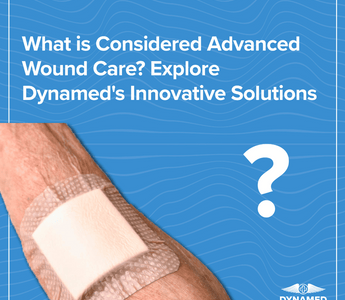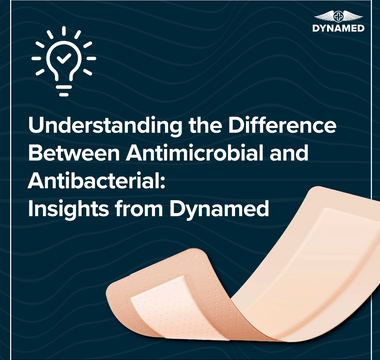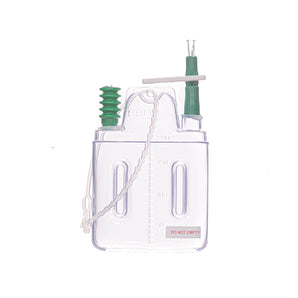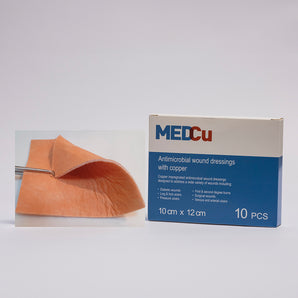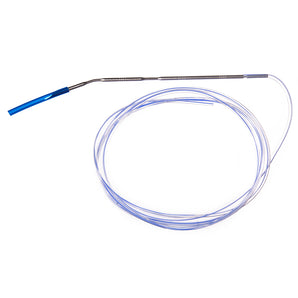In the realm of wound healing and surgical innovation, advanced wound care is a pivotal concept that addresses complex wounds which resist standard treatment. These wounds often stem from surgeries, chronic illnesses, or sudden injuries, necessitating specialised care to foster healing. By focusing on advanced techniques, we can significantly reduce healing time and improve recovery outcomes.
Advanced wound care involves a variety of modern treatments, including innovative dressings like hydrocolloid, hydrogel, and alginate, which create an ideal moisture environment for healing. This approach not only helps prevent infections but also enhances the overall healing process. As we explore these advanced methods, it's crucial to understand their role in improving patient care and recovery.
In South Africa, where healthcare needs continue to evolve, embracing advanced wound care solutions can lead to better health outcomes. By prioritising these specialised treatments, we aim to support individuals on their path to recovery and well-being.
Key Takeaways
-
Advanced Techniques for Complex Wounds: Advanced wound care addresses wounds resistant to standard treatment, often related to surgeries, chronic conditions, or acute injuries. Innovating these techniques significantly reduces healing time and enhances recovery outcomes.
-
Innovative Dressing Materials: Utilising advanced dressings like hydrocolloid, hydrogel, and alginate aids in creating an ideal moisture environment for healing. This approach prevents infections and improves the healing process.
-
Specialised Treatment Options: Advanced wound care encompasses diverse treatments such as Negative Pressure Wound Therapy, Bioengineered Skin Substitutes, and Hyperbaric Oxygen Therapy, which are vital for managing complicated wounds.
-
Benefits Over Conventional Methods: By using advanced wound care techniques, there is a notable reduction in healing times and infection rates, thus improving patient recovery and overall health outcomes.
-
Important Criteria for Care: Effective advanced wound care requires thorough patient and wound assessment, considering factors like medical history, wound size, and the presence of infection to tailor treatments accordingly.
- Challenges and Implementation Considerations: Cost and access to advanced treatment remain significant challenges, especially in remote areas. Balancing these with modern solutions is essential for enhancing patient care and ensuring wide accessibility in South Africa.
Understanding Advanced Wound Care
Advanced wound care involves specialised treatment methods for wounds not healing with standard interventions. These wounds often stem from surgeries, chronic conditions, or significant injuries. We aim to facilitate healing by utilising tailored approaches that address the specific needs of each wound type. Silver wound dressing and hydrogel wound dressings are popular options, as they maintain optimal moisture and prevent infections.
Modern dressings, found in our comprehensive collection of advanced wound care products, incorporate materials like hydrocolloid and alginate to create the ideal healing environment. The barriers they provide protect the wound while promoting faster recovery. For instance, silver dressings are built with antimicrobial properties that significantly reduce the risk of infection. By incorporating these innovative solutions into treatment regimes, healing times reduce, and patient outcomes improve.
Have you ever wondered why certain wounds won't heal? Several factors can impede progress. Chronic diseases like diabetes, inadequate blood circulation, and bacterial infections are common culprits. Additionally, a poorly maintained wound environment can cause delays. That's where advanced techniques, including antimicrobial wound dressings, make a marked difference.
Dynamed Pharmaceuticals, renowned for advanced wound care products and medical devices, strives continuously to provide solutions designed to simplify the management of complex cases. Our approach considers the unique characteristics of each wound, ensuring optimum care and comfort. This strategy not only speeds up recovery but also empowers patients to achieve better long-term health outcomes.
Types Of Advanced Wound Care
Ever wondered what sets advanced wound care apart from conventional techniques? In a world where healing goes beyond just bandages, advanced wound care becomes a game changer. As South Africa's leader in this field, Dynamed not only delves into the traditional approaches but elevates them to modern solutions for challenging wounds. From acute injuries to chronic conditions, our products drive results that matter.
Types Of Advanced Wound Care
Negative Pressure Wound Therapy
Negative Pressure Wound Therapy (NPWT) is a revolutionary approach. It involves placing a vacuum device over the wound, which draws out fluid and infection. This process creates an environment conducive to healing by promoting granulation tissue formation. It's a technique that suits various wounds, whether acute, traumatic or surgical. Imagine a sponge dressing fitted snugly in the wound, attached to a gentle vacuum pump—it sounds almost futuristic, right?
Bioengineered Skin Substitutes
Bioengineered Skin Substitutes provide a sophisticated answer to missing or damaged skin. These substitutes mimic natural skin layers, offering a temporary or permanent cover. Culturing skin cells or using collagen matrices, we create these substitutes to support healing in complex wounds. They're particularly beneficial for burns or ulcers where natural healing lags behind. With this technique, integration into the wound bed is pivotal for success.
Hyperbaric Oxygen Therapy
Ever hear of breathing new life into healing with oxygen? Hyperbaric Oxygen Therapy (HBOT) does just that. By immersing patients in a high-pressure oxygen environment, HBOT enhances oxygen delivery to tissues, accelerating healing. It’s often used for non-healing wounds like diabetic foot ulcers or radiation-related injuries. As oxygen is crucial for tissue repair, increasing its availability makes a substantial difference.
Why not explore these advanced solutions and take the first step towards efficient healing? Visit Dynamed's website for more insights and products that transform care delivery. Our dedication ensures we cater to every specific need, fostering better outcomes for those who depend on us.
Benefits Of Advanced Wound Care
Advanced wound care, including options like hydrogel wound dressings, plays a crucial role in managing complex wounds. Our focus on innovative techniques helps enhance recovery, offering several benefits over standard treatments.
Faster Healing Times
We all want wounds to heal quickly, right? Advanced wound care creates optimal environments, accelerating tissue repair. For instance, hydrogel and hydrocolloid wound dressings maintain moisture, essential for cell growth and repair. According to studies, such dressings can cut healing times by up to 50% compared to traditional methods. By employing these advanced techniques, we significantly improve patient outcomes, allowing them to resume their daily lives sooner.
Reduced Infection Rates
Nobody likes infections. Antimicrobial wound dressings, such as silver wound dressings, play a vital part in infection prevention. These products incorporate antimicrobial properties that minimise bacterial growth, reducing infection risks notably. Evidence suggests that applying silver dressings can lower infection rates in chronic wounds by up to 30%. By integrating these technologies, we're not just speeding up healing but also safeguarding health, ensuring a comprehensive approach to wound care.
For more insights on how our advanced solutions can enhance your healing process, feel free to explore our range of products on Dynamed's website.
Criteria For Advanced Wound Care
Determining advanced wound care involves assessing specific criteria to ensure effective treatment. Understanding these criteria is crucial for managing wounds that don't heal with standard methods.
Patient Assessment
We begin by evaluating the patient comprehensively. It's essential to consider factors like age, medical history, and existing chronic conditions such as diabetes, which can affect healing. We also assess lifestyle and nutritional status since these influence recovery. For instance, poor nutrition may slow wound healing, while adequate protein intake supports tissue repair. Engaging with healthcare professionals ensures that these factors are addressed, leading to tailored wound care strategies.
Wound Characteristics
Analysing the wound itself provides critical insights. We examine factors like wound size, depth, and location. Understanding if the wound is chronic or acute determines the approach. Complex wounds like pressure ulcers or diabetic foot ulcers might need specialised treatments using our advanced wound care products. For example, hydrogel wound dressings can maintain an optimal moisture environment, aiding quicker healing. Additionally, evaluating the presence of infection or exudate guides the choice of medical devices. By selecting appropriate dressings like antimicrobial wound dressings or hydrocolloid wound dressings, we enhance recovery and minimise infection risk. This focused evaluation ensures that advanced wound care effectively meets each unique wound's needs.
Engaging these criteria through a systematic approach enhances patient outcomes and sets the foundation for successful wound management.
Challenges And Considerations
Advanced wound care, while innovative and beneficial, presents certain challenges and considerations that need attention for successful implementation in South Africa.
Cost Factors
Cost issues significantly affect the accessibility and application of advanced wound care. Methods like bioengineered skin substitutes and hyperbaric oxygen therapy, although effective, come with high costs. For healthcare providers, balancing budget constraints with the provision of sophisticated wound care products, such as hydrogel wound dressings and antimicrobial dressings, is a constant challenge. Dynamed's efforts to offer quality products at competitive prices help mitigate these financial barriers, ensuring more patients benefit from advanced solutions.
Access To Treatment
Access to treatment remains uneven across regions, impacting patient outcomes. In remote areas, reaching specialised wound care services is often limited by geography. To address these disparities, enhancing infrastructure and telemedicine capabilities becomes crucial. Providing education and resources for local clinicians on advanced techniques like negative pressure wound therapy ensures broader availability of care. We see institutions like Dynamed striving to bridge this gap by supplying medical devices and wound care products directly to healthcare facilities across the nation.
Advanced wound care presents significant promises but isn't without its challenges. By understanding and addressing these factors, we can better tailor our approach to meet the diverse needs of patients across South Africa. Consistent innovation and strategic solutions from companies like Dynamed play a critical role in overcoming these obstacles, ultimately improving healthcare delivery and patient recovery outcomes.
Conclusion
Advanced wound care represents a significant leap forward in medical treatment, offering tailored solutions that address the complexities of non-healing wounds. By integrating modern techniques like Negative Pressure Wound Therapy and bioengineered skin substitutes, we're setting new standards in recovery and patient care. The benefits of these advanced methods are clear, from reducing infection rates to speeding up healing times. However, the challenges of cost and accessibility, especially in regions like South Africa, remind us of the ongoing need for innovation and strategic planning. As we continue to explore these solutions, we're committed to enhancing health outcomes and supporting individuals on their recovery journeys.
Dynamed Pharmaceuticals
Phone: 0861 00 00 43
Website: dynamed.co.za
Email (Sales): sales@dynamed.co.za
Email (Info): info@dynamed.co.za
Google Maps: Find us here
Frequently Asked Questions
What is advanced wound care?
Advanced wound care involves specialised methods for treating complex wounds that don't heal with standard interventions. These methods create optimal healing conditions, reduce infection risks, and include treatments like hydrocolloid dressings, antimicrobial dressings, and hyperbaric oxygen therapy.
Why is advanced wound care important in South Africa?
In South Africa, advanced wound care is crucial for improving health outcomes and supporting recovery, particularly in cases involving chronic illnesses, surgeries, or injuries. These specialised treatments help manage complex wounds more effectively, reducing healing times and infection rates.
What are some types of advanced wound care treatments?
Advanced wound care treatments include hydrocolloid, hydrogel, and alginate dressings, antimicrobial dressings like silver wound dressings, Negative Pressure Wound Therapy (NPWT), and bioengineered skin substitutes. Each method serves to enhance healing by addressing specific wound characteristics.
How do antimicrobial dressings improve wound care?
Antimicrobial dressings, such as silver wound dressings, are designed to reduce the risk of infection by up to 30%. They are particularly effective in managing chronic wounds, helping to accelerate healing and safeguard patient health by maintaining a sterile wound environment.
What role does Negative Pressure Wound Therapy (NPWT) play in healing?
Negative Pressure Wound Therapy (NPWT) utilises a vacuum device to draw out fluid and infection from wounds. This creates a controlled environment promoting faster healing, making it especially beneficial for complex or non-healing wounds.
How does Hyperbaric Oxygen Therapy (HBOT) enhance wound recovery?
Hyperbaric Oxygen Therapy (HBOT) involves delivering high levels of oxygen to tissues, which accelerates healing, particularly for non-healing wounds like diabetic foot ulcers. It enhances oxygen delivery, promoting better blood circulation and tissue regeneration.
What are the challenges of advanced wound care in South Africa?
Challenges in South Africa include high costs of treatments like bioengineered skin substitutes, uneven access across regions, and the need for improved infrastructure. Efforts by companies like Dynamed to provide quality products at competitive prices aim to address these barriers.
How does hydrogel enhance wound healing?
Hydrogel wound dressings maintain a moist healing environment, which can significantly reduce healing times, potentially by up to 50% compared to traditional methods. They help to remove dead tissue and promote new tissue growth, supporting effective recovery.
What factors influence the choice of advanced wound care techniques?
Factors include patient age, medical history, chronic conditions like diabetes, lifestyle, nutritional status, and specific wound characteristics such as size, depth, and location. Comprehensive assessments ensure treatments are tailored to individual needs, improving patient outcomes.
How is accessibility to advanced wound care being improved?
Efforts to enhance accessibility involve offering education and resources for local clinicians, expanding telemedicine capabilities, and developing infrastructure. Companies like Dynamed are working to provide competitive pricing for quality products, aiming to make advanced wound care more widely available.

